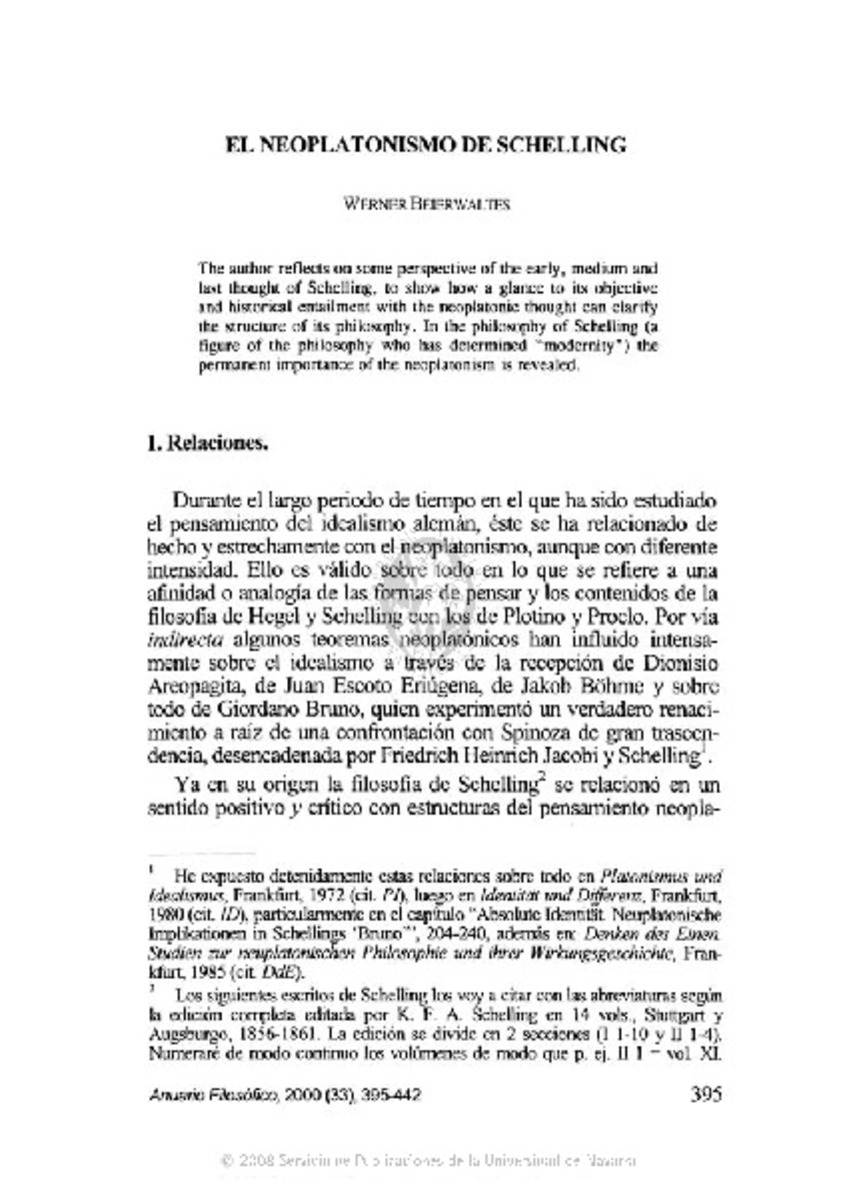Full metadata record
| DC Field | Value | Language |
|---|---|---|
| dc.creator | Beierwaltes, W. (Werner) | es_ES |
| dc.date.accessioned | 2004-12-10T17:27:33Z | es_ES |
| dc.date.accessioned | 2007-03-08T16:39:49Z | - |
| dc.date.available | 2004-12-10T17:27:33Z | es_ES |
| dc.date.available | 2007-03-08T16:39:49Z | - |
| dc.date.issued | 2000 | es_ES |
| dc.identifier.citation | Anuario Filosófico 2000 (33), 395-442 | es_ES |
| dc.identifier.issn | 0066-5215 | es_ES |
| dc.identifier.uri | https://hdl.handle.net/10171/444 | - |
| dc.description.abstract | The author reflects on some perspective of the early, medium and last thought of Schelling, to show how a glance to its objective and historical entailment with the neoplatonic thought can clarify the structure of its philosophy. In the philosophy of Schelling (a figure of the philosophy who has determined “modernity”) the permanent importance of the neoplatonism is revealed. | es_ES |
| dc.format.extent | 350208 bytes | es_ES |
| dc.format.extent | 350208 bytes | - |
| dc.format.extent | 239774 bytes | - |
| dc.format.extent | 1892 bytes | - |
| dc.format.mimetype | application/msword | es_ES |
| dc.format.mimetype | application/msword | - |
| dc.format.mimetype | application/pdf | - |
| dc.format.mimetype | text/plain | - |
| dc.language.iso | spa | es_ES |
| dc.rights | info:eu-repo/semantics/openAccess | es_ES |
| dc.title | El neoplatonismo de Schelling | es_ES |
| dc.type | info:eu-repo/semantics/article | es_ES |
| dc.identifier.doi | 10.15581/009.33.29537 | es_ES |
Files in This Item:
Statistics and impact
Items in Dadun are protected by copyright, with all rights reserved, unless otherwise indicated.






